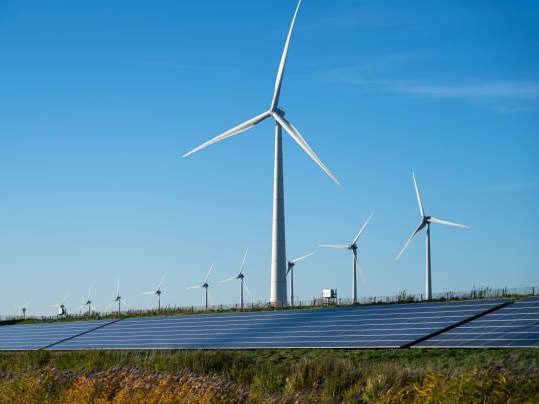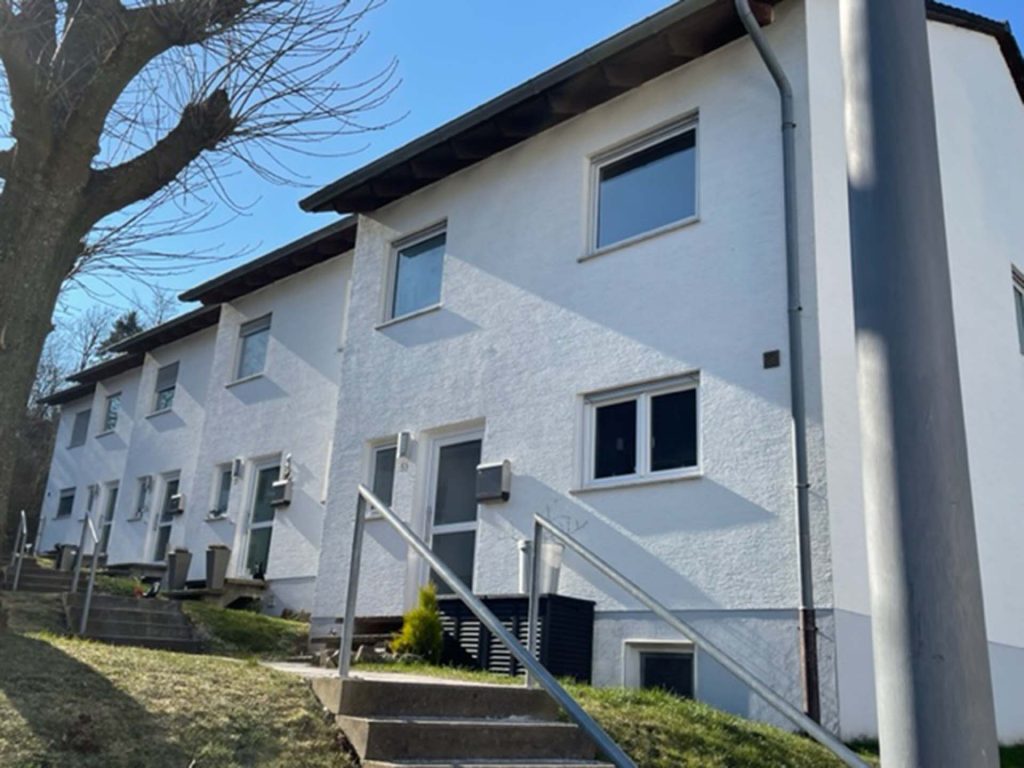Landlords who supply their buildings with self-produced solar power will be penalized by tax. Gieag board member Philipp Pferschy finds this highly nonsensical in year 20 of Germany’s energy transition.
Sheep grazing under solar panels, cows staring at wind turbines, landscapes converted into power generation plants. I, for one, had imagined the energy turnaround and the accompanying switch to “clean” electricity differently. Precisely because we in Germany like to think of sustainability in holistic terms. In our country, energy generation is still based on the motto: Where does the electricity come from, if not from the socket?
As a medium-sized project developer of logistics properties, we have created more than 100,000 m2 of flat roofs in recent years. These are not beauties, but useful buildings that are urgently needed. Most of the buildings are easily accessible, the infrastructure is right. The only thing is that these buildings are not allowed to produce their own electricity – even though the flat and standardized roof structures would be perfect for solar panels.
for solar panels. Don’t get me wrong: I’m not an advocate of the idea of turning buildings into power plants. A house is still a house, and a power plant is still a power plant. But when it comes to photovoltaics, we should take smarter approaches than planting solar panels in our fields and meadows.
So it remains a mystery to me why the legal framework for generating solar power on buildings is not being adapted. After all, unlike owner-occupiers, landlords who produce electricity on buildings and offer it to their tenants suddenly become energy suppliers and are therefore subject to business tax. From a systematic point of view, this may make sense to German tax officials, but against the backdrop of the energy transition, it hardly does.
Yet this issue by no means only affects the logistics industry, on the contrary. As is well known, tenant electricity is primarily relevant for residential buildings. Why, on the one hand, more and more bee colonies are being settled on building roofs, but, on the other, tenants are not allowed to obtain their own solar power, is at the very least a quirk of German administrative logic. To be sure, switching to renewable energies is a huge challenge for the world’s fourth-largest economy with a population of over 80 million. But we are now in year 20 of the German energy transition, and there have already been no shortage of reforms and amendments to this law. Now it is time to finally end the tax infection of electricity-producing buildings.
An article from the Immobilien Zeitung No. 35/2020 from August 27, 2020
GIEAG Immobilien AG
Philipp Pferschy
Montgelasstraße 14
81679 München
ir@gieag.de
+49 89 290516-0
PB3C GmbH
Tauentzienstr. 16
10789 Berlin
gieag@pb3c.com
+49 30 726276-152
GIEAG is a family-run Munich real estate stock corporation. The shares of GIEAG Immobilien AG are traded on the Munich Stock Exchange. By combining the three asset classes - office, residential, logistics - and the two service areas of development and portfolio management, the company offers stability that is unique in the market. The GIEAG team of experts is a guarantor for innovative and forward-looking concepts.
Over the past 25 years, GIEAG Immobilien AG has developed and optimised a large number of real estate projects with areas of up to 145,000 square metres and an individual investment sum of 15 to 150 million euros. Partnership, transaction security, perseverance and speed are the basis of sustainable value development for GIEAG.




